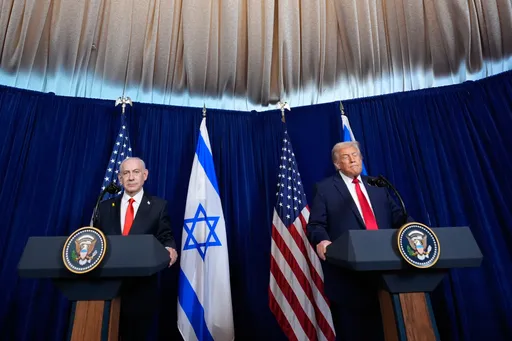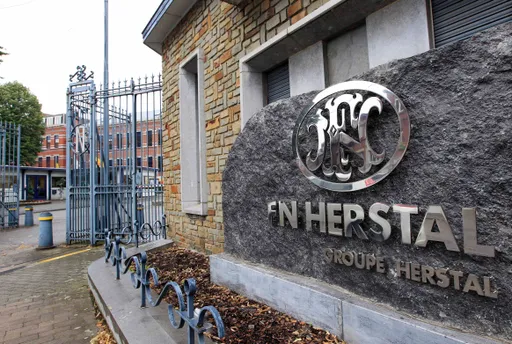The Netherlands has sent out a strong message that it won’t blindly follow the United States when it comes to imposing export curbs on China’s semiconductor industry.
In the last few days, Dutch trade minister Liesje Schreinemacher has given multiple interviews and spoken to lawmakers, saying Amsterdam will do what’s in its “national interest”.
“Obviously we are weighing our own interests. Our national security interest is of the utmost importance,” she told Reuters on Friday.
US President Joe Biden’s administration introduced crippling measures in October targeting the export of equipment and raw material which Chinese chip firms need to make advanced semiconductors.
This has put countries like The Netherlands in a difficult position as it is among some European countries having a big stake in selling products to China.
The Netherlands is home to ASML, the world leader in photolithography equipment. It controls the entire market for Extreme Ultraviolet Lithography (EUVL) machines, which are essential to manufacturing advanced microprocessors.
ASML hasn’t been able to ship EUVL machines to Chinese buyers since 2018 even after booking orders. Washington blocked the sale, saying ASML uses American technology.
China has raised concern about the US export curbs and asked the Netherlands to reconsider the decision.
On the sidelines of the G20 summit in Bali, Indonesia, earlier this month, Chinese President Xi Jinping told Dutch Prime Minister Mark Rutte that economic and trade ties must not be politicised.
Since then, Schreinemacher – who holds the portfolio of Dutch Minister for Foreign Trade and Development Cooperation – has used multiple occasions to speak about the US export curbs.
In what Bloomberg said were first public remarks by a Dutch official, Schreinemacher told Netherlands’ NRC newspaper that her government won’t adopt US measures “one-to-one”.
A few days later, she reiterated the stance in a speech before lawmakers in a parliamentary session in The Hague, saying the Netherlands has to look after its own economic interest as well.
Schreinemacher, who is travelling to Vietnam on an official trip between November 28 and 30, wasn’t immediately available to respond to TRT World’s query on whether Amsterdam will seek a waiver for ASML’s export to China.
The Dutch pushback comes at a time when Chinese companies are being forced to liquidate their stakes in European chip firms.
Earlier this month, the UK government ordered a subsidiary of China’s Wingtech Technology to sell its stake in Newport Wafer Fab, the country's biggest semiconductor producer. London took the decision on national security grounds.
That came on the heels of a German move to block the sale of Elmos Semiconductor, which makes chips for cars, by a Chinese firm.
Washington wants its allies – including Japan, Taiwan and South Korea – to stop the flow of equipment, human resources and technical know-how that China needs to progress in the field of artificial intelligence and military applications.
But these same US partners have strong economic and trade ties with China, the world’s second largest economy.
South Korea’s Samsung makes memory chips at a plant in China’s Shaanxi province, Japan’s largest trading partner is China and Taiwanese engineers are at the helm of Semiconductor Manufacturing International Corporation (SMIC), Beijing’s prized contract chip-maker.
The US measures are aimed at keeping China’s semiconductor industry at least two generations behind Western peers.
For instance, it’s very difficult for Chinese chip manufacturers to produce logic chips at 10 nanometers or more advanced nodes without ASML’s EUVL equipment.
A nanometer, a unit of measurement that is a fraction of a human hair’s diameter, is used to denote distance between tiny transistors. The lesser the distance, the more transistors can be squeezed onto a silicon wafer, increasing the productivity of the chips.
China’s SMIC shook industry experts when it emerged earlier this year that the Shanghai-based company was already manufacturing 7nm chips whereas Intel is yet to launch its 7nm chip.
The US export curbs want to restrict Chinese chip-makers at 14nm – the kind of chip that goes into a tablet these days.
SMIC, which has access to ASML’s second-most advanced chip-making equipment known as Deep Ultraviolet Lithography (DUVL), was able to make the 7nm chips using a complicated process, which is not always commercially viable.
Experts caution that 7nm or 10nm is a figure used for marketing purposes as semiconductor foundries such as SMIC or Taiwan Semiconductor Manufacturing Company have their own technology and process, which ultimately determine the cost and performance of a chip.
Latest Apple and Samsung smartphones use 7nm or more advanced chips.























